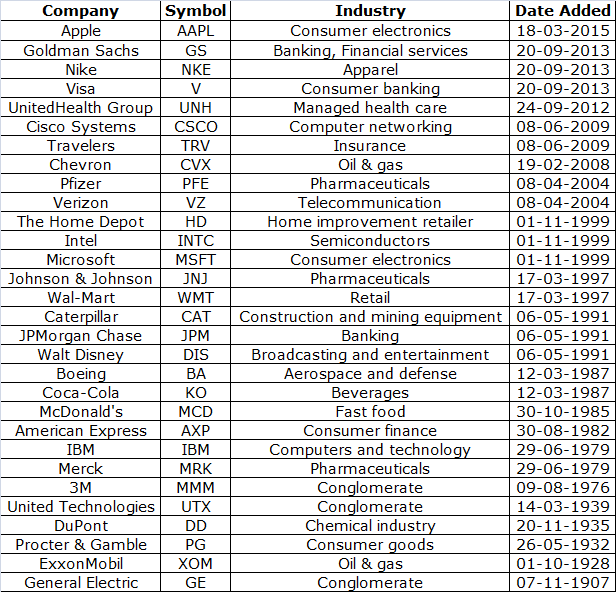Returning To A Former Employer After A Layoff: Negotiating Your Best Offer

Table of Contents
Assessing Your Situation and the Company's Needs
Before initiating contact with your former employer, a thorough self-assessment and company analysis are crucial. Understanding your strengths and the company's needs will significantly impact your negotiation power.
Reflect on your previous role and performance.
Returning to a former employer requires honest self-reflection. Analyze your past contributions:
- Identify your strengths and areas for improvement: What were you exceptionally good at? Where could you have performed better? Be specific and quantify your achievements whenever possible.
- Review your past performance reviews and feedback: These documents provide valuable insights into your manager's perception of your work. Use this feedback to shape your narrative and address any previous concerns.
- Highlight quantifiable achievements and contributions: Focus on the tangible results you achieved. Did you increase sales, improve efficiency, or launch a successful project? Use numbers to demonstrate your impact.
Research the company's current situation.
Understanding the company's current landscape is essential for a successful negotiation:
- Check their recent news and press releases: Look for information about company growth, restructuring, or any recent challenges. This will inform your understanding of their needs and priorities.
- Understand their current staffing needs and challenges: Are they hiring for similar roles? Are there any projects underway that align with your skills? LinkedIn can be a valuable resource for gathering this information.
- Analyze market trends and competitor activity affecting the company: A strong understanding of the industry context will help you contextualize your salary expectations and the value you bring.
Network with former colleagues and managers.
Leverage your existing network to gather crucial information:
- Gather insights into the company's current culture and priorities: Have things changed since your departure? Understanding the current work environment is vital.
- Gain perspective on potential challenges or opportunities: Your former colleagues can provide valuable insights into the current state of affairs.
- Determine if your return would be welcomed: This informal check can help you avoid an awkward situation and gauge their interest in rehiring you.
Preparing for the Negotiation
Thorough preparation is key to a successful negotiation when returning to a former employer. Knowing your worth and what you're willing to compromise on will strengthen your position.
Define your salary expectations.
Research is crucial for determining a realistic salary range:
- Research industry salaries for similar roles: Use resources like Glassdoor, Salary.com, and Payscale to understand the current market rate for your skills and experience.
- Consider your experience, skills, and the current market conditions: Your experience at the company should be factored into your salary expectations, alongside your acquired skills and the current market demands.
- Account for any potential raises or promotions you might have received had you stayed: Consider the salary progression you would have likely experienced had you remained employed.
Identify your non-negotiables.
Know your bottom line and your priorities:
- Consider benefits like health insurance, retirement plans, and paid time off: These are crucial elements of a comprehensive compensation package.
- Think about flexible work arrangements or other perks: Consider factors like remote work options, flexible hours, or professional development opportunities.
- Prepare to discuss your priorities calmly and confidently: Know what's important to you and be prepared to articulate your needs professionally.
Practice your pitch.
Rehearse your conversation to ensure confidence and clarity:
- Highlight your value proposition and what you bring to the table: Focus on your skills, experience, and the positive impact you made during your previous tenure.
- Prepare to answer potential questions about your departure and your goals: Address any concerns they might have about your previous exit.
- Prepare to confidently state your salary expectations: Practice clearly and concisely communicating your desired salary range.
Conducting the Negotiation
The negotiation process requires strategic communication and a willingness to compromise.
Approach the conversation strategically.
Start by expressing your enthusiasm and framing your return as a win-win:
- Start by expressing your interest and enthusiasm for the opportunity: Demonstrate your eagerness to return and contribute to the company's success.
- Frame your return as a mutually beneficial arrangement: Highlight how your skills and experience can benefit the company.
- Be prepared to discuss your compensation expectations clearly and concisely: Avoid ambiguity and clearly state your salary requirements.
Listen attentively and be flexible.
Negotiation is a two-way street:
- Understand the company's perspective and constraints: Be receptive to their concerns and willing to explore alternative solutions.
- Be open to compromises and creative solutions: A flexible approach can lead to a mutually agreeable outcome.
- Show that you're eager to collaborate and find common ground: Demonstrate your willingness to work together to reach a resolution.
Don't be afraid to walk away.
Know your worth and your leverage:
- If the offer doesn't meet your minimum requirements, you have the right to decline: Don't settle for less than you deserve.
- Remember your worth and your leverage: Your skills and experience are valuable assets.
Conclusion
Returning to a former employer after a layoff can be a strategic career move. By carefully assessing your situation, preparing for negotiation, and approaching the conversation with confidence, you can significantly improve your chances of securing a favorable offer. Remember to highlight your skills, experience, and value to the company. Don't undervalue yourself! Thoroughly research the market and prepare to advocate for your worth. By following these steps, you can successfully navigate the process of returning to a former employer and negotiating the best possible compensation package. Start preparing your strategy today to maximize your chances of successfully returning to a former employer.

Featured Posts
-
 Chelsea Handler Netflix Premiere Date For The Feeling Announced
Apr 26, 2025
Chelsea Handler Netflix Premiere Date For The Feeling Announced
Apr 26, 2025 -
 Stock Market Valuations Bof As Reassurance For Investors
Apr 26, 2025
Stock Market Valuations Bof As Reassurance For Investors
Apr 26, 2025 -
 The Ultimate New York Knicks Roommates Show Guest List 12 Picks
Apr 26, 2025
The Ultimate New York Knicks Roommates Show Guest List 12 Picks
Apr 26, 2025 -
 Todays Nyt Spelling Bee Solutions And Support March 25 387
Apr 26, 2025
Todays Nyt Spelling Bee Solutions And Support March 25 387
Apr 26, 2025 -
 Stock Market Analysis Dow Futures Chinas Economy And The Tariff Situation
Apr 26, 2025
Stock Market Analysis Dow Futures Chinas Economy And The Tariff Situation
Apr 26, 2025
